Book review: Hell Yes / Hell No
by John Noe, Ph. D.
★★★★★
Is God really going to banish the majority of his creation to eternal torment? Well, to start with, what and where is this eternal torment? Noe starts his in-depth study by discussing four words in the Bible that have been translated in different versions of the Bible as “hell.” These four words are Gehenna (the garbage dump outside Jerusalem, where the fire burns non-stop), Sheol (the realm of the dead as they await resurrection, primarily in the Old Testament), Hades (which Noe labels as the Greek equivalent of Sheol), and Tartarus (referenced only in 2 Peter as a place of banishment for sinful angels.) This mismatch of meanings hardly lends strength to the doctrine of eternal damnation. Is today’s understanding of hell merely a Christian invention?
Christian Universalists have a hard time believing a God of Love could be so cruel as to torture anyone for an eternity. Thankfully, a number of verses in the Bible give a different picture; a picture of universal acceptance into heaven. Noe provides a very impressive, scriptural study of both sides of the argument. Recognizing that each side has an exhaustive battery of “proof verses,” and that scripture itself reminds us we are delving in a great mystery (see Romans 11:33-36), he cautions us against disregarding contrary opinions, and suggests we proceed with a high degree of humility.
While Mr. Noe and I will never be exactly on the same page (he “is not and has never been a liberal Christian” while I am precisely that), I am awed by his research. I can respect Noe’s Sola Scriptura stance so long as he takes a good, hard, scholarly look at what the scriptures really say (and do not say!), and this he has done. The key word in this argument, undoubtedly, is the word “all.” When the Bible says, “all,” does it really mean all?
Christ gave himself a ransom for all men.
For the grace of God that brings salvation has appeared to all men.
In the last days, God says, I will pour out my Spirit on all people.
I bring you good tidings of great joy, which shall be to all people.
The examples of universal language in the scripture are numerous. Underlining this topic is one all-important question: Why did Jesus die? Especially in the minds of Universalists, who posit that everybody eventually winds up in heaven anyway. You may begin to think about the redemptive power of the Cross a little differently after this study with Noe. Consider, for example, Paul’s comparison of Adam to Christ: “So it is written, ‘The first man Adam became a living being’; the last Adam, a life-giving spirit.” Christian Universalists now charge, “if people are burning in hell, Adam did not foreshadow Christ, he eclipsed Him … religion makes Adam more powerful than Christ.”
Noe proposes a reevaluation of the texts, and mediates a sort of reasonable vote on various topics. Perhaps by tallying up the strengths of the Universalist texts against the strength of the Exclusivist texts—bearing in mind what we have learned about the Greek words and meanings behind what has often been translated as hell—we can reach a conclusion.
It’s no slam dunk. In fact, the voting results in a push, until Noe introduces a tie-breaker topic titled God’s Revealed Character and Nature. Under this topic, he lobbies for a kind and loving God, based on the weight of scripture that describes God as someone who would never banish anyone to eternal torment. The scales are thus tipped in favor of Universalism … as we guessed all along.
Engaging, interesting, intelligent, thought-provoking, this is a book every Christian should read. But I cannot leave this topic without reminding you of Noe’s beginning assumption, a trust that scriptures are divinely inspired and internally consistent. This is me talking from here on; not Noe.
I can respect Noe’s desire to give equal weight to all scripture, but this is the very reason these arguments crop up. It’s not that the scriptures are ambiguous—common sense can usually determine what the author has in mind to say—it’s that in places they are flat-out contradictory. This study highlights this problem very well.
The majority of the Universalist texts derive from Pauline writings. The original Paul, not later pseudo-Pauline writings such as II Thessalonians. Paul, I confess, may have been a Universalist—though, whether in his beliefs or in his dream for mankind I cannot tell. Matthew, with his repeated divisions and images of punishment and gnashing of teeth, is most certainly an Exclusivist … and a terrifying one, at that.
So if we are to take a vote to decide whether the doctrine of Exclusivity or the doctrine of Universality is correct, here is how I think we should be voting, recognizing that different writers held different opinions:
Is Paul right or wrong?
Is Matthew right or wrong?
Is Hebrews right or wrong?
Is James right or wrong?
Or do we scrap them all, and go with Revelation’s afterlife vision of a bodily resurrection and a kingdom established on the earth?
Regardless of my differences with Noe, this is a study that’s worth the effort, and Noe tackles it in fair and scholarly fashion. Five stars, for sure.

Book review: The Historical Reliability of the Gospels
by Craig Blomberg
★★★★
In an era when it’s trendy to question everything written in the Bible, here’s a scholarly exception. Blomberg is a conservative who isn’t content to found his faith on faith alone. After a run-down of the latest methods of Biblical analysis, he tackles three primary “problems” for scholarly believers:
[1] Miracles, and the problem of credibility. This may be Blomberg’s weakest argument, where he is reduced to concluding that if the resurrection really happened, then surely none of the other stories are that incredible!
[2] Contradictions within the three Synoptic Gospels. Perfect harmonization is an unreasonable expectation, and even if errors do exist (Blomberg does not admit to any, but confesses the possibility) then that may explain some of the apparent contradictions.
[3] The problem of John’s Gospel. What are we to make of this maverick writing? It seems to argue against the Synoptics at every turn, and repeatedly insists upon eyewitness testimony. Blomberg’s take (which I’m oversimplifying) is basically, “Let John be John;” the apparent contradictions are not severe enough to discredit either John or the Synoptics.
Blomberg then discusses the Jesus tradition outside the Gospels. What do the remaining books in the New Testament say about Jesus? What do the extra-canonical writings say? What do non-Christians say? He concludes that they reinforce the Gospel story.
So are the Gospels reliable history? Some Christians would affirm this merely because their doctrine of the inspiration of scripture requires them to, but Blomberg believes the Gospel story can stand on its own. He finds it neither a slam-dunk for or against historical reliability, but rather a topic deserving of serious scholarship, and certainly not a barrier to conservative Christian faith.

Book review: Who is Jesus?
by John Dominic Crossan and Richard G. Watts
★★★★★
This is a short, very readable book (now fifteen years old) that does an excellent job of introducing the Historical Jesus; Crossan’s take in particular. Labeled by liberal Christian Marcus Borg as the “premier Jesus scholar in the world today,” Crossan’s picture of Jesus is controversial and base … which is precisely what you would expect of research into the “historical Jesus.” It’s about the flesh-and-blood man who walked the earth, not the legends that grew about him. A series of contrived questions meant to introduce the topic and the scholarship of Crossan and Watts steer the reader through the life and death of Jesus; how he lived, what he taught, what he really hoped to accomplish.
According to Crossan, Jesus was not really born of a virgin, performed no nature miracles, and never rose from the dead. Probably, he was never buried to begin with, as that would be uncommon for a crucifixion victim. Jesus was a social revolutionary with a humanitarian vision of a “Kingdom of God,” which, by Crossan’s definition, is how Jesus imagined “the way a kingdom on this earth would be established if God were in control.” This vision left Jesus in conflict with the Roman Empire, and eventually led to his arrest and sentence. By the Romans, of course, not the Jews.
Crossan insists that his book is not meant to be about Christ, but only about Jesus. Faith is not about Jesus, or about any historical reconstruction of his life, but about Christ. “Jesus”is the historical person; “Christ” affirms who he is for believers, and Christian faith is always faith in the historical Jesus as a manifestation of God to us. As Crossan explains, faith cannot ignore or bypass the historical facts, but faith goes beyond the facts to wrestle with the meaning.

Book review: Everything I Know About God I Learned From Football
by Eric Chaffin
★★★★
My beloved Vikings are 0-4. Could be a long season. In desperation, I found this little book of inspiration. The Forward promises, “Everything I Know About God I Learned From Football is a book that beautifully offers both the sports fan and the disciple of Christ a formula for success.”
Chaffin tells stories from the gridiron, and relates them to the Bible and Christian life. He writes from a conservative perspective, providing encouragement and spiritual direction. It’s a serious topic, but told in a way that makes sense even with a beer in one hand and a remote control in the other. Each chapter concludes with a red-zone push (a bulleted summary) and a post-game kneel (a short prayer).
Cute, personal, a little sappy from a guy’s perspective. Buy it for your guy and set it on the armrest of his easy chair for halftime reading. Maybe he won’t totally forget about God this Sunday.

Book review: Angel
by Laura Lee
★★★★
An uncomfortable page-turner. I’m glad I read it, but glad to be finished. Not that the book is distasteful; it was just a foreign and unsettling topic for me. But that’s why I asked Lee for a review copy.
Lee’s protagonist is a middle-age minister who has lost his wife, and suddenly finds himself attracted to a young man, despite the church’s disapproval. They find it necessary to hide their friendship, which is both demeaning and spiritually draining. Shipwreck seems inevitable.
Lee writes with insight and flounce, and you just can’t put the darn thing down. The language is a bit crude in places, but appropriately so, as it does define the characters and our minister’s descent/growth (I’ll let you decide which). The story ends appropriately, which is all I dare say on that matter, except to promise it will leave you thinking about the not-so-subtle discrimination against sexual orientation in today’s Christianity, and the emotional scars and marginalizing it causes.

Book review: Early Christian Writings
Letters of the Church Fathers
★★★★
If you’re looking for a brief collection of early Christian writings, this one hits all the high points. For someone wanting a taste of the emerging church, Christianity in its infancy, nothing beats reading the letters and theological treatises themselves, and this is a good collection. Nothing fancy; the introduction is short and the notes are sparse, limited primarily to historical settings, so you’re getting it from the horses’ mouths.
And what you’re getting is the founding Fathers, after the excitement of the first century and its expectation of the immediate return of Christ died down. The men who took the scriptures seriously and built a religion for the long haul. Jewish customs are still evident, early doctrine is solidified, martyrs are glorified. Here’s the lineup:
The first epistle of Clement to the Corinthians
Seven epistles of Ignatius
The epistle of Polycarp to the Philippians
The martyrdom of Polycarp
The epistle of Diognetus
The epistle of Barnabas
The Didache
This is a Penguin Classic, translated by Maxwell Staniforth with commentary by Andrew Louth.

Book review: Toward a True Kinship of Faiths
by the Dalai Lama
★★★★★
The most special thing about this book is the way it leaves you with the feeling that you’ve been talking face to face with His Holiness, the Dalai Lama. He writes with humility and passion, on matters close to his heart.
This book is about learning to get along, because the world is shrinking. Advances in science and industry have brought us closer together, even as religious differences seem extreme. Yet, the fascinating thing is, all of the world’s most respected religions seem to share one thing in common: A teaching of compassion. Even while some religions are theistic and others, like the Buddhist tradition of the Dalai Lama, are non-theistic, the basic teaching is the same. Compassion is, in different variations, the common denominator.
As such, the Dalai Lama shows familiarity and respect for all the popular religions, and maintains that pluralism is the healthiest answer. He pleads for inter-denominational understanding, and he writes with the authority and intelligence that would be expected of his title. I couldn’t help but be both impressed and inspired. Yet, when it comes to discussing alternative religions, I doubt he will ever be able to relate on the same level to those born into those religions. The Dalai Lama can appear logical and naive in the same breath, as he dreams about mutual respect across religious boundaries. Consider this problem formula, which arises in any religion where adherents are taught that theirs is the “only true way:”
I feel the Spirit ==> God is with me and my chosen religion ==> I have found the one true way
Yet, though the Dalai Lama is optimistic for the future (as am I), he understands the problem. Religions tend toward exclusivism, so while adherents are taught concern for others, this concern often translates merely into an urge for evangelism. Christians want everybody to enjoy being a Christian! On this topic, the Dalai Lama strongly disagrees. When speaking outside his country, he often begins by assuring his audience that he is not promoting Buddhism; rather, he maintains that the best religion for any person is usually the religion of their heritage. Respect for one another’s beliefs is the only way to overcome religious squabbles and promote peace.
Which, of course, is another place where the book appears a bit naïve. Fundamentalist Christians don’t want peace; they get positively giddy at the thought of a world war, since this means Jesus is coming to rescue them.
So what’s the answer? I’m not convinced this book has any, because I’m not convinced there are any quick fixes. But I agree that believers must, one at a time and at a grass-roots level, come to see the world in a different manner. We must see across religious boundaries and welcome every human as a brother or sister, like Jesus taught.
Well, we can dream.

Resurrection: Myth or Reality?
by John Shelby Spong
★★★★★
“Death cannot contain him, we have seen the Lord!”
What really happened two thousand years ago? Bishop Spong takes us on a journey through the scriptures as he uncovers clues leading to the truth about the resurrection.
[1] Beginning with Paul and then traversing the four gospels one at the time, Spong covers what the Bible tells about the historical event.
[2] Leading into “interpretive images,” he next discusses several ways the Bible adds meaning to the story: the atoning sacrifice of Hebrews, the suffering servant, and the Son of Man.
[3] Then come five “clues,” Biblical stories that lend insight into how the resurrection of Jesus was perceived.
[4] Finally, Spong provides his own “speculative reconstruction” about what he believes truly happened.
Spong is, of course, a liberal Christian. Don’t expect a conservative explanation. He concludes, however, that “Behind the legends that grew up around this moment, there is a reality I can never deny. Jesus lives. I have seen the Lord.”

Book review: The First Paul
by Marcus J. Borg and John Dominic Crossan
★★★★★
This book is my favorite among the works produced by the alliance of Borg and Crossan. What happens when you separate the original works of Paul from the later pseudonymous works? What kind of Paul emerges as the “real” Paul, the one who really walked the earth, the one who witnessed the post-resurrection Jesus as a light from heaven and whose visionary experience instilled a radical, superhuman drive to spread the message of Christ?
Of the thirteen Pauline letters in the New Testament, only seven are universally accepted as genuine. The pastoral letters to Timothy and Titus are generally accepted as not written by Paul. Scholarship waffles on the third group: Ephesians, Colossions, and 2 Thessalonians. Borg and Crossan are among those who see these three letters as post-Pauline. They break the Pauline letters into three categories: The radical Paul behind the authentic letters; the conservative Paul behind the questionable letters; and the reactionary Paul behind the pastoral letters.
Slavery: What does the radical Paul have to say? The pseudo (conservative) Paul? The anti (reactionary) Paul? Patriarchy: What do the three Pauls have to say? How about suppression of women? The meaning of the cross? The return of Jesus? Lordship and Christology?
We watch, within the New Testament’s pages, the historical Paul evolve into pseudo-Paul, and finally into the anti-Paul–in many cases, a 180-degree turnaround from what Paul actually taught. The subtitle of this book is Reclaiming the Radical Visionary Behind the Church’s Conservative Icon, and anyone interested in first-century Christianity will be delighted by this portrayal. This is an eye-opening, controversial book you don’t want to miss.

Book review: Beyond Belief, The Secret Gospel of Thomas
by Elaine Pagels
★★★★★
Pagels is a recognized scholar of religion, and the author of The Gnostic Gospels, among others. This book might be her best.
Don’t buy this expecting a dull, scholarly exposition on the Gospel of Thomas. It’s hardly that. It’s sort of an unobtrusive evangelism for unorthodox Christianity, a plea for the kind of “religious truth” that can never hide behind a stale set of doctrine.
Pagels bares her soul in this book, and her passion for spirituality, religion and Christianity shines. The result is inspirational. This is the book that turned me on to Pagels’ scholarship, and I’ve felt a distant kinship ever since. It’s really less about the Gospel of Thomas and more about diversity and meaning within the early Christian movement. John’s Gospel actually gets as much attention as the Gospel of Thomas. While John hints of gnostic influence, it also finds itself in direct opposition to Thomas on many topics, such as the divinity of Christ. Pagels embraces this diversity of ideas, and spends a great deal of time discussing how the canon of acceptable scripture grew.
I love engaging, thought-provoking books, and Pagels never disappoints.

Book review: The Scholar’s Bible: Mark
by Daryl D. Schmidt
★★★★★
As the first gospel penned about a man who would command the attention of a third of the world … as the book that would form the foundation for the next two gospels written … the influence of Mark’s Gospel is undeniable.
With Greek on the left page, a translation dubbed the Scholars Version on the facing page, and the bottom portion of both reserved for verse-by-verse commentary, Schmidt’s work glows of authenticity. It’s like you’re reading the words the day after they were written, as if you are the person they were written for. This is not an in-depth study (at least, not alongside some of the tomes you’ll find in university bookstores), and outside the 39-page introduction there’s little topical coverage, which leaves primarily the simplicity of the Gospel translation as its selling point. I can’t even say the translation is terribly precise; it just rings to me of the proper flavor, as much as today’s English can allow.
Recommendation: Just read the translation through in one sitting to savor the Gospel story; then, go back and review the commentary.

Book review: The Misunderstood Jew
by Amy-Jill Levine
★★★★
What started out as a light-hearted look at the Jewish Jesus quickly turned somber. This is a serious look at the pain that anti-Semitic interpretations of the Bible have caused and continue to cause. Levine, a Jew, has an excellent grasp of New Testament studies, so this is more than a rant against Christian prejudice. It’s a serious look at the real Jesus, his Jewishness, and Christianity’s emergence within first-century Judaism. A provocative quote from the book: “I find Jesus reflects back to me my own tradition, but in a new key. I also have to admit to a bit of pride in thinking about him–he’s one of ours.”
Over and over, Levine contradicts misunderstandings about Judaism, particularly first-century Judaism, and the stereotypes that have developed as a result of shallow Christian teaching. She does so from both a Jewish and a scholarly perspective. Levine made me think differently about first-century Judaism and how Jesus fit within that context.
Because I’ve never keenly felt the sting of anti-Semitism, or felt myself anti-Semitic in any way, much of the book was an eye opener. I felt myself often teetering on the edge between thinking Levine oversensitive and thinking her insightful. Example: Paul writes in Galatians 3:28, “There is no longer Jew or Greek, there is no longer slave and free, there is no longer male and female, for all of you are one in Christ Jesus.” In this verse, Levine admits, “I hear a desire that my people, the Jews, cease to exist.”
While a scholar myself of first-century Christianity, I confess it’s sometimes hard for me to relate to current day Jewish-Christian tensions. On the other hand, your shrink will tell you that feelings are the ultimate truth; Christians must validate the feelings that their teachings evoke among Jews, and seek to correct the source. Levine’s final chapter provides several helpful suggestions to facilitate interfaith understanding.

Book review: Revelation: The Way it Happened
by Lee Harmon
★★★★
Here’s another review of my book on Revelation. It can be found on Goodreads, by reader Logan, at: http://www.goodreads.com/book/show/9688311-revelation
“This was a very intriguing read. It is a sort of hybrid between a historical novel and an exegetical review of Revelation. It gives us much of the supposed context of the writing of this book in the form of dialogues between various historical and fictional characters interrupted intermittently by ‘interludes’ that provide us with factual explorations of the historical and psychological context of Revelation. The historical context is unquestionably true and described in thorough detail: the influence of Rome, Greece, Jewish tradition, ancient preJudaic tradition, Jesus, &c. The mental context is also most probably true, and can be assumed through the historical lens: the interpretation of Jewish literature at the time, the meaning of the Messiah to the small sect of believers calling themselves Christians, the pressure of Rome and Judaism on commoners, &c. Both of these lend to the specific story that Harmon has created, a story in which a reactionary group writes a richly historical and allusive but also intensely innovative work of preChristian literature.
“Harmon does not treat Revelation as necessarily ‘true’ in the Christian sense, and so he provides an objective look at the proper historical roots of this rather odd book. I greatly enjoyed reading it, as well, for I am someone greatly interested in the Bible but largely unread on the subject of the Apocalypse and its proper place in the Judaeo-Christian canon. Both Christian and nonChristian alike would be well advised to simply try this book if they consider the Bible anything worth taking seriously.”

Book review: Has God Spoken?
by Hank Hanegraff
★★★★
From the introduction: “This book counters such contentions and crafts a cumulative case for the absolute authority of the Bible. It answers the question, ‘Has God spoken?’ in the affirmative and demonstrates beyond a reasonable doubt that the Bible is divine rather than merely human in origin. Without such assurance, Christianity would not have any more authority for faith and practice than does Islam, Mormonism, or a host of other misguided movements.”
I offer the above quote to set the tone of the book. I had a hard time with this book merely because of Hanegraff’s style. Not that his writing isn’t good—it’s actually quite superb and fun to read—but because he’s so downright feisty! He takes on an apologetic role, zealously attacking Bart Ehrman, President Obama, Bill Maher, or Richard Dawkins on every other page. When he’s not dissin’ scholars, he’s dissin’ fellow religions.
He says, “It is as unlikely that Jews falsified the Exodus as it is that they fabricated the Holocaust. Archaeology provides a wholly plausible framework for Jewish contentions regarding their enslavement and emancipation. While archaeology has thoroughly discredited the Book of Mormon, internal evidence provides credence to the people, places, and particulars found in the biblical text.” Oh, wow. Need I say more? One thing archaeology can say for certain is that there were never two million people tromping around in the desert for forty years.
Nevertheless, the book does hold your attention! I definitely never grew bored. It’s a little like listening to a talk show host that drives you totally bonkers, but that you can’t shut off.
At times, Hanegraff’s apologetic stance left me bewildered. He had no trouble arguing for the historic reliability of the flood story in the Bible, while in the next breath ridiculing earlier versions of the flood myth, such as the Epic of Gilgamesh. Does he really not recognize that the Hebrew version of the story is just as fantastic as the others? He then waffles on the subject, suggesting that perhaps Genesis implies a local flood rather than a worldwide one, and thus totally misses the point of the myth: That the ark was necessary to sustain life on the earth, because God was going to destroy everything he had made.
If you can ignore the sermonizing, however, there is a lot of thought provoking conversation in the book. I particularly enjoyed Hanegraff’s discussion of typology. Was Isaiah thinking of Jesus as he wrote about a young maiden giving birth to the child Immanuel? No, not according to Hanegraff (and he’s surely right), Isaiah was writing about his own time period. Did Hosea have Jesus in mind when he wrote, “Out of Egypt I have called my son?” Of course not, he was writing about Israel, not Jesus. How about Jeremiah’s words, quoted by Matthew to highlight the slaughter of the innocents by Herod: “A voice is heard in Ramah, weeping and great mourning, Rachel weeping for her children and refusing to be comforted, because they are no more.” This quote highlights the utter silliness of imagining that Matthew was taking these prophesies as predictive; unquestionably, Matthew rightly understood this passage in Jeremiah to be a warning to the southern kingdom of Judah that they were about to experience what happened to Israel. These are not predictive prophecies, but typological prophecies. In this discussion, Hanegraff brings the Bible’s prophecies back to life in a believable and recognizable way. As Hanegraff explains, Matthew saw a historical pattern of events from the past that corresponded to present situations, and he saw them as quintessential fulfillments. The historical patterns reached a climax in the life of Jesus.
Other topics that I enjoyed were the discussion of archaeological finds, of the Abomination of Desolation (Hanegraff’s preterist tendencies subtly poke through here and there), and of figurative language in the Bible. Hanegraff writes a great book, he just gets a little too aggressive at times.

Book review: What’s In A Version?
by Henry Neufeld
★★★★★
Henry Neufeld operates Energion Publications at http://energion.com. I’ve read a couple other books that he promotes, but never one he authored himself. If What’s In A Version is representative of his work, then I’m hooked!
Different Bible interpretations each carry a different emphasis. The New International Version (NIV) and the New Living Translation (NLT) emphasize that their translators are evangelical. Other translations, such as the Revised English Bible (REB) and the New Revised Standard Version (NRSV) emphasize the variety on their translation committees, including interfaith participation.
So, given that translations purposefully vary, how is a person supposed to make an informed decision without knowing the source languages (Hebrew, Greek, Aramaic)? Henry has a BA and MA in Biblical Languages, and writes for the purpose of making the Bible more accessible to the laity. I found this book to be a practical and friendly guide, describing how translations are made, so we readers are better able to understand the arguments for or against various versions. Numerous examples manage to turn what I thought would be a dry discussion into fascinating reading. A chart at the back of the book is helpful in providing an overview of the differences of various common translations. (After reading Henry’s book, I know better than to call these differences “strengths” or “weaknesses,” just decisions made for focus, translation preference, and religious emphasis!)
I did find a few formatting and editing errors, which was a minor distraction.

Book review: Imperial Cults and the Apocalypse of John
by Steven J. Friesen
★★★★★
If you are a serious student of Revelation, this is a book you must read. I don’t think there’s another book like it … yet. That Revelation’s warnings often relate directly to the Imperial Cult of the late first century has been understood for a long time, but this book tackles the topic head on, in scholarly fashion. Friesen relates what archaeology has discovered about Caesar worship in Asia Minor, Revelation’s target audience. Much can be gathered from the study of coins, temple ruins, and writings. The Caesars were often simulated into the worship of traditional Greek deities, and what we understand from archaeology about both the public and mystery rituals is detailed.
One conclusion Friesen draws is that the Imperial Cult was definitely founded upon Caesar Augustus and his accomplishments. Augustus was worshiped as Zeus, the high god of the Greeks. In my mind, at least, there can be little doubt that the first of the seven kings of Revelation is Augustus … not, as some preterists insist, Julius Caesar. Friesen also concludes that the Flavians, including Vespasian and Titus, were also highly honored in myth. This matches the findings and conclusions in my own book, Revelation: The Way it Happened.
Friesen’s book is in two parts: First, the study of the Imperial Cults, and then, how Revelation relates to that study in its direct opposition to Roman imperialism and the abomination of Caesar worship. Of particular interest to readers of Revelation, of course, is Nero Caesar, considered by most to be either the fifth or the sixth king of the seven (depending upon whether you begin counting with Augustus or Julius). Most studied scholars of Revelation agree that, at least on some level, John was surely writing about Nero as the Beast of the Sea.

Book review: Jesus: Last of the Pharaohs
by Ralph Ellis
★★★★
What a fun book! A conspiracy theory in the extreme, but that’s okay. Sometimes it’s entertaining to simply recognize the parallels–in this case, the strong resemblance between Biblical characters and the Pharaohs of Egypt–and run with them, to see where they take you. This book leads deep into Egyptology, relating the stories of the Bible directly to ancient Egypt, and concluding that Judaism, including its offshoot Christianity, stems from ancient Egyptian ritual. You’ll find Abraham, Moses, even Jesus among the Pharaohs.
Ellis’ analysis of the exodus as stemming from the eruption of Santorini is one of the book’s more interesting passages. This isn’t a new idea (see Acts of God, by Graham Philips) but Ellis fleshes it out, explaining the boils on the skin and more. His point is that the Biblical account is historical and fits nicely into the timing of his thesis, relating Moses to the Hyksos people.
Ralph Ellis has produced a suite of similar books, and this is apparently the one that started the ball rolling. Jesus: Last of the Pharaohs has gone through at least two reprintings. There’s an awful lot of original information here, and a lot of conclusions drawn on linguistics and minimal evidence, but if Ellis and his topic piques your interest, there’s much more available to read.
While this is not a religious book, its intent is to uncover the truth about Christianity. It is, according to Ellis, “The true history of religion revealed.” It’s dedicated to his children so that they “may know the truth.” Ellis obviously wants us to take his conclusions very seriously, and change our view about religion. While I can accept that Egyptian history and myth influenced the stories written in the Hebrew scriptures on some level–this should not be terribly surprising if Israel really escaped from Egypt–I can’t quite carry the parallels as far as Ellis does. But I still found the book fascinating and learned a lot.

Book review: Eternal Life: A New Vision
by John Shelby Spong
★★★★★
For all you Spong fans who were beginning to grow frustrated at his vagueness, this book tackles an important subject head on. What are liberal Christians (at least those in the Spong mold) supposed to make of the Bible’s promise of eternal life?
We needn’t depend upon the supernatural in order to grasp eternal life, for all life is deeply linked. Spong quotes Einstein’s provocative claim to explain: “I feel myself so much a part of everything living that I am not the least concerned with the beginning or ending of the concrete existence of any one person in this eternal flow.” Spong wants us to “embrace infinity,” to “transcend time.” But he hopes for us to discover the eternal in a very practical way. Eternity is within us, it is what it means to be human.
Spong writes, “The power of love flows through all forms of life, but it ceases to be instinctual and comes to self-consciousness only in human beings. That power of love is also part of who God is for me. This means that the more deeply I am able to love, the more God becomes a part of me. This is why no religion can in the last analysis ever really be about proper beliefs and proper practices … Religion has to be about the enhancement of life through love.” You’ve probably heard this before if you’re a Spong fan, but it doesn’t hurt to be reminded. Love is, after all, the key to finding life eternal.
But what about reward? Spong is quite happy to rid religion of both heaven and hell, having never been a fan of either. “The fact is that if you and I live our lives motivated by our desire to gain paradise or to avoid eternal punishment, then we have not escaped the basic self-centeredness of life that is so natural to survival-oriented, self-conscious creatures.” In other words, eternal reward only gets in the way of the true Christian message.
Uplifting and timely, this is a book worth reading twice. I have.

Book review: Bakkhai
by Euripides, translated by Reginald Gibbons
★★★★
For those who don’t recognize the title, this ancient Greek theater piece is about the god Dionysus, god of wine. It was first performed in Athens, in 405 BC. And for those who still don’t catch the connection to my blog, it’s this: Many of the characteristics of Jesus are shared with this frivolous Greek god, and at least one of Jesus’ miracles—turning water into wine—also seems closely related. In fact, the late Byzantine play, The Passion of Christ, drew heavily on the Bakkhai.
Greek tragedies are a little hard for us to fully enter into two and a half millennia later, particularly as we struggle to understand on just at what level the Greeks believed in their gods, but the commentary of this book does a great job of making something foreign feel familiar. In the play, you’ll see Dionysus’ more unpleasant side … his usual ecstasy and abandon turn into vengeance and bloodlust, aimed toward a young king who seeks to discredit him. True to Greek form, the god wins, with no apparent attempt at a climaxing plot; we understand from the beginning that humans are doomed to subjection before the gods. The punishment for disbelief far exceeds the crime, with no hint of pity or apology, as befits the gods’ disdain for lesser beings.
I found the forty page introduction superb, and the notes following the play a bit less so, though still helpful in illuminating the setting.

Book review: Evidence for the Historical Jesus
by Josh McDowell and Bill Wilson
★★★★
Great book! I enjoyed reading it, and it’s chock full of fascinating facts and interesting arguments. I’ve got margin notes and highlights all over it. While the authors seem a bit defensive at times, they do provide a lot of meat to chew on. I enjoyed learning about Jesus the Jew, arguments against the two-source theory, arguments against Christianity as a copycat of the mystery religions, and the discussion of Jesus’ own Messianic and divine understanding.
I really did enjoy the book. Unfortunately, as far as the book’s purpose of providing evidence of the Historical Jesus, I came away underwhelmed. Such “evidence” ends on page 87 with the statement “That Jesus actually lived in history should be obvious by now.” It’s actually anything but obvious; by this point, the authors have reviewed only rabbinic writings, secular writings like those of Josephus, and the testimony of the early church fathers. They argue that surely no martyr would die for a cause he didn’t 100% believe in. None of this convinces me of a historical Jesus beyond, say, about a 50% surety. But unfortunately, from this point forward in the book, the authors shift focus to proving the historic accuracy of the Bible, and in doing so, they overreach and leave some of their arguments crippled. The Gospel story does provide much indirect evidence for the existence of Jesus, but in trying to prove the Bible happened literally, word-for-word, the authors wind up falling back on logic that just doesn’t work for me. Because of the authors’ stated premise of proving Jesus lived, a critical review must address primarily this goal, so it’s going to be rather long and sound more negative than the book deserves. But here goes.
Here’s an example of the type of claim that betrays the authors’ bias: “A comparison between the false writings and the canonical ones often immediately confirms the obvious superiority and authenticity of the canonical gospels.” Well, if that were even remotely true, we wouldn’t be having this discussion. Perhaps the canonical gospels have a more authentic air than the non-canonical ones, but that hardly confirms that any of them are authentic. Here’s another typical assumption: “The New Testament accounts of the life and teaching of Jesus were recorded by men who had been either eyewitnesses themselves or who related the accounts of eyewitnesses of the actual events of teachings of Jesus.” Again, if we knew this to be true, the discussion about Jesus’ existence wouldn’t be necessary. How about this: “The New Testament accounts of Jesus began to be circulated within the lifetimes of those alive at the time of his life. These people could certainly confirm or deny the accuracy of the accounts.” Oops! The story of Jesus was written outside the territory where Jesus taught, in a language Jesus and his closest followers probably didn’t speak, 40-80 years after Jesus died. Perhaps by “New Testament accounts” the authors mean the writings of Paul, but then much of the “did Jesus exist” argument becomes centered around whether or not Paul really did teach a human Jesus. Or perhaps by “within the lifetimes of those alive at the time of [Jesus’] life” they mean primarily John the Apostle. Tradition holds that John outlived the other apostles into the final decade of the first century. John, then, could have read the other gospels, and would have had opportunity to contradict them, right? Well, guess what? John’s Gospel does just that; just about every place John refers to a story in the Synoptics, it’s to contradict the story. That’s hardly an endorsement of the Synoptic gospels.
Sometimes, the arguments presented by the authors seem to hurt their cause more than they help. Because an early date of the Gospels seems important to them, they point out how the book of Acts does not mention the war of 70 AD, and conclude that it must have therefore been written earlier than the year 70. Then, because Acts refers to an earlier writing (presumably the Gospel of Luke), they conclude Luke must have been written earlier yet. But they forget to mention that Luke writes very specifically about the war; thus, a historical-critical approach to the Gospel story must date Luke after 70 AD. Here’s another howler quoted from the book: “There is no mention of Jesus’ tomb ever being venerated as were those of at least fifty other prophets, later including Hanina ben Dosa. The only good explanation is that Jesus’ bones were no longer there.” Um, sorry, the only really good explanation is that Jesus was never there in the first place!
My opinion: By taking on the role of apologists, the authors may have relinquished some of their strongest Biblical arguments. They discuss John the Baptist, but by taking an apologetic stance, they can’t question why the Gospels would record the embarrassing story of Jesus being baptized by a competitor “for his sins” if it weren’t historically true. They mention how Paul refers to James as the brother of Jesus, but because they prefer not to emphasize the friction between Paul and the Jerusalem Christians, they cannot argue that Paul didn’t mean “brother” as a title or in a spiritual sense. They ignore the lonely cry of despair of Jesus on the cross, or any of the other human traits of Jesus in the book of Mark, such as his occasional failures. They argue that Matthew was written before Mark, presumably to defend the claims of the early church fathers, but in doing so, they destroy a valuable argument: by tracing the declining Christology of the New Testament as we step backward in time, the way current scholarship chronologically orders the books of the New Testament, we aim straight for a human Jesus.
Finally, let me say it one more time for emphasis, because I realize I came down pretty hard on the book. I really enjoyed it! It just falls flat of its stated purpose by trying to prove too much.


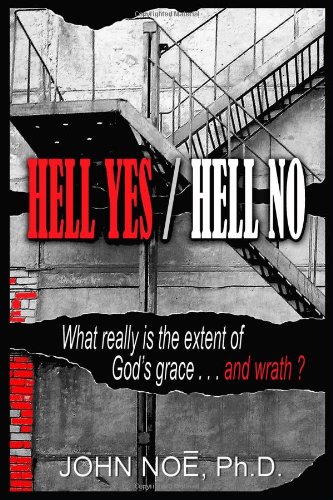
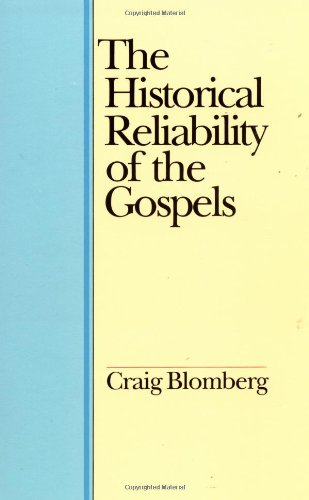
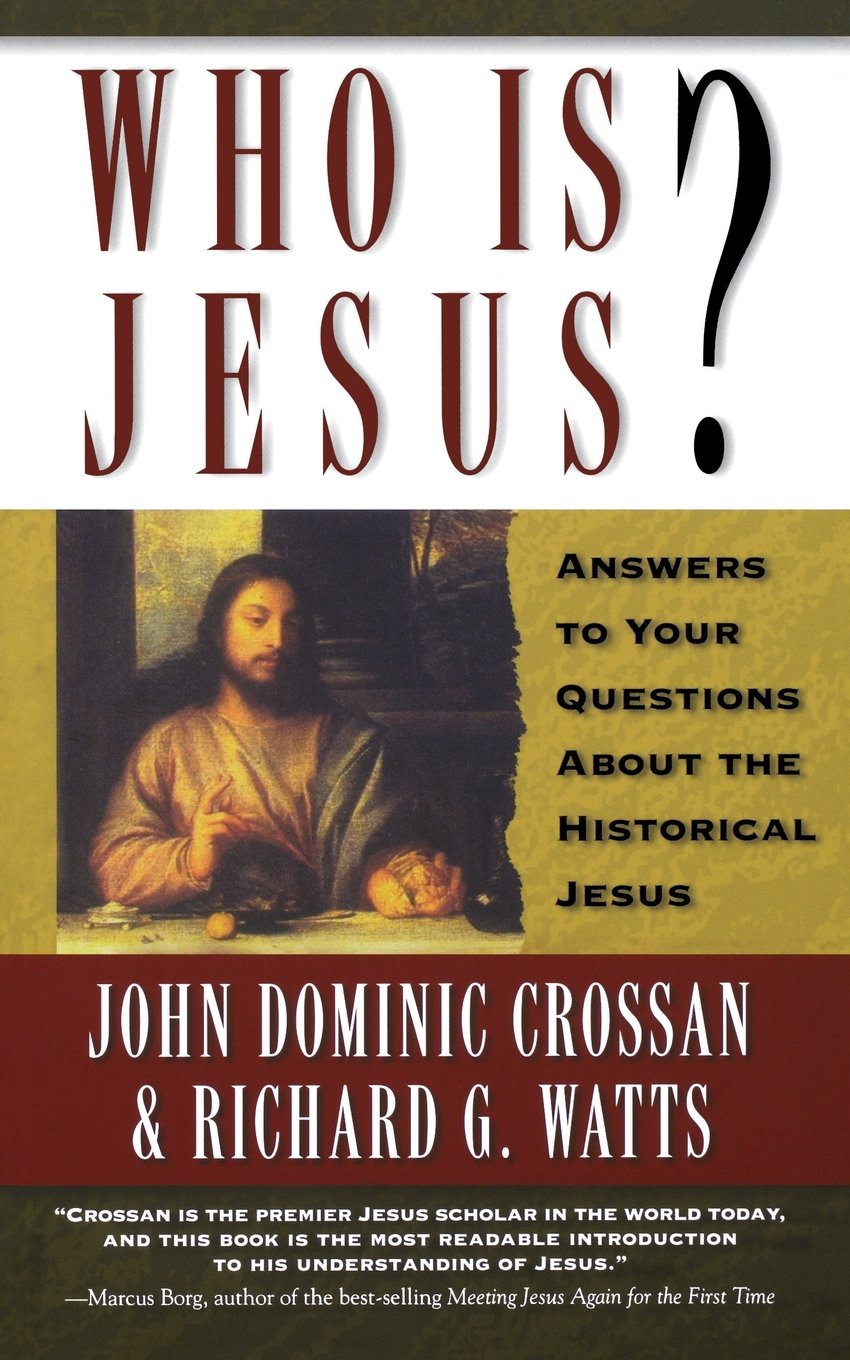

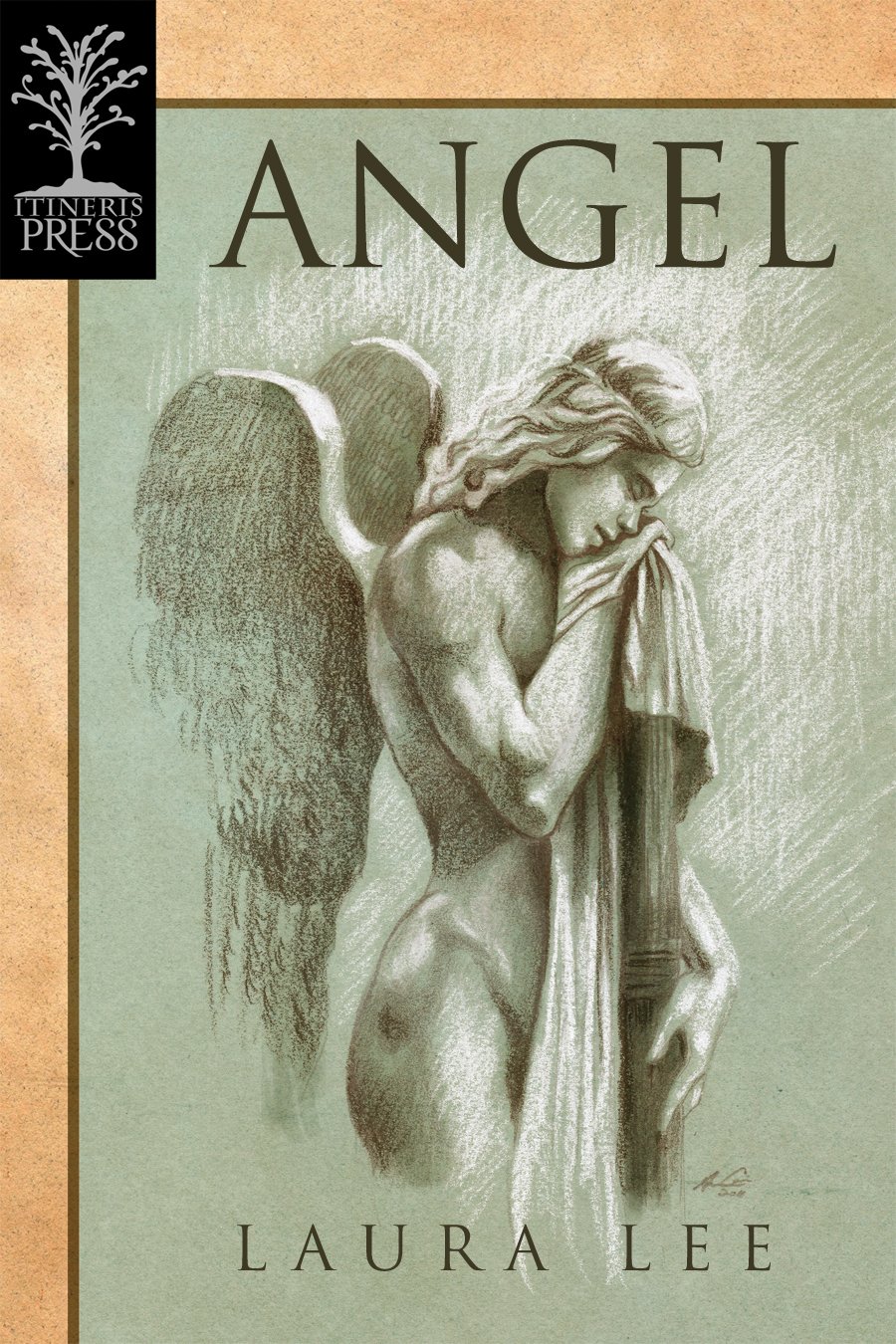
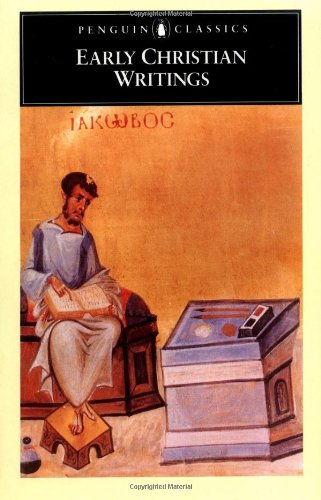
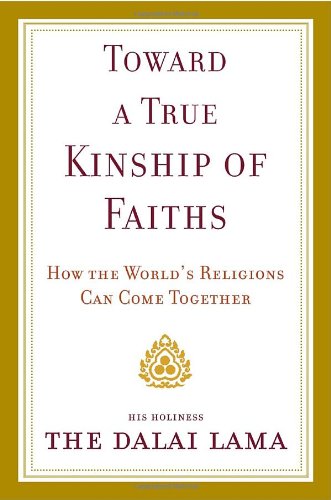
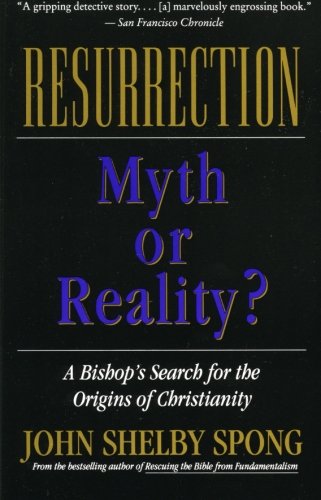
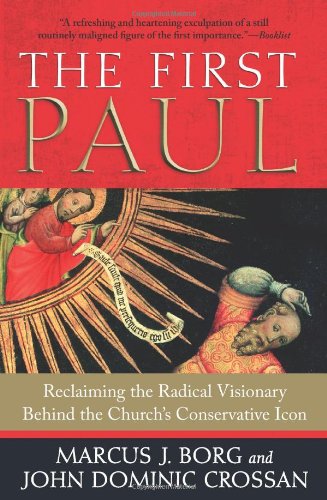
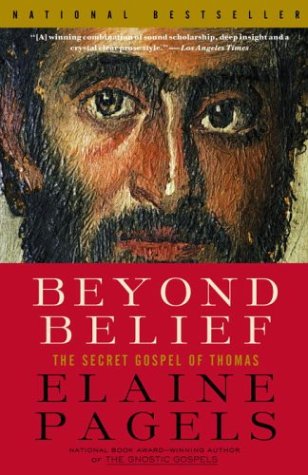
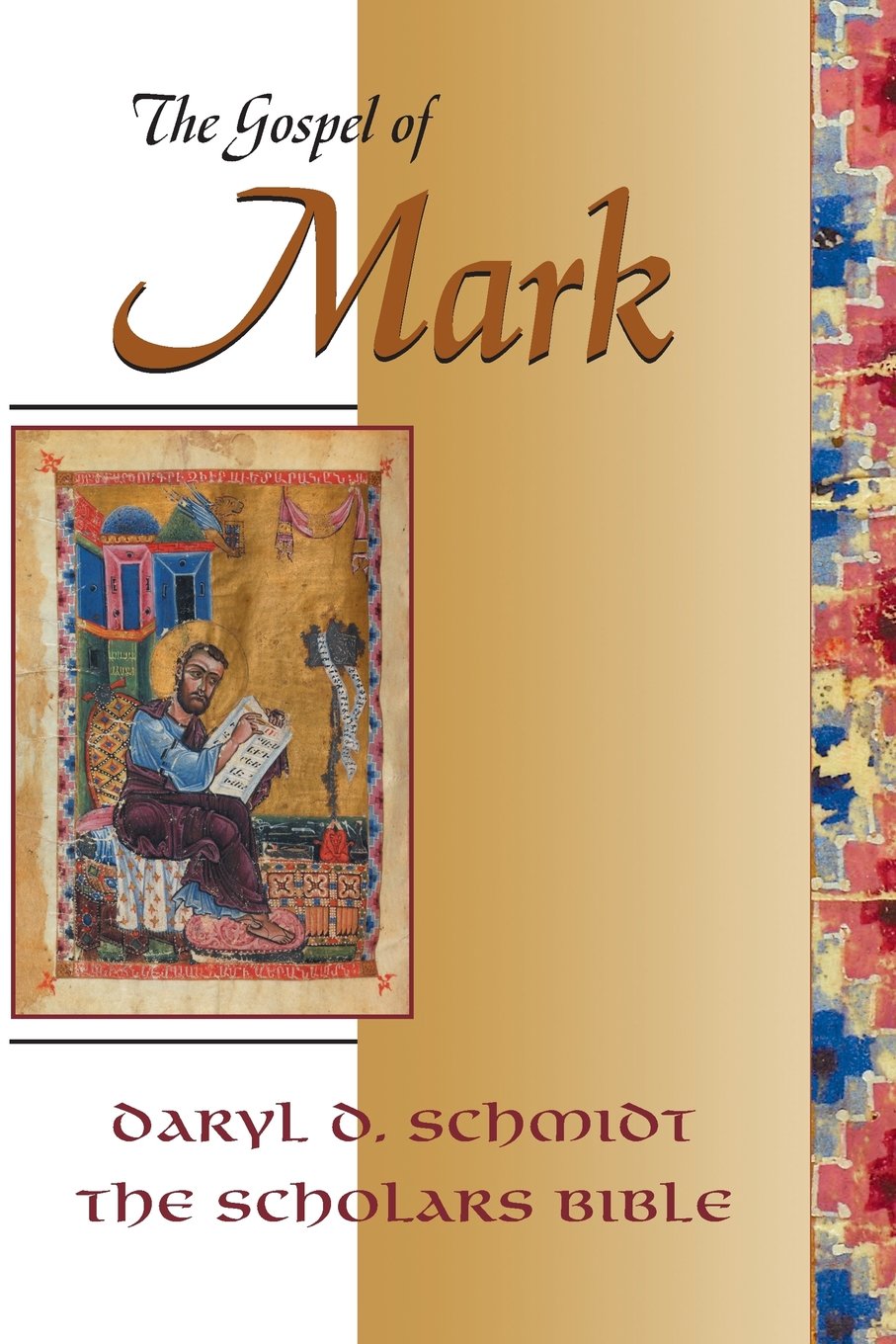

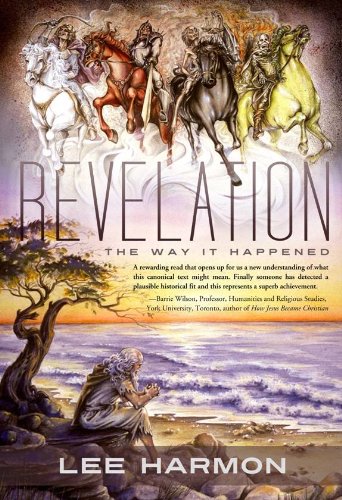


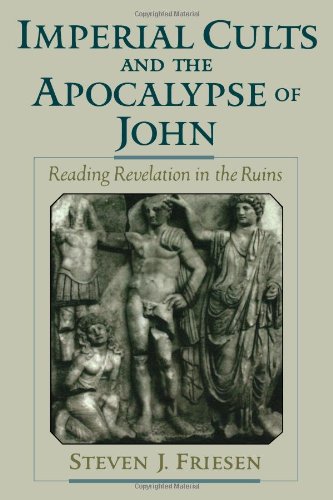
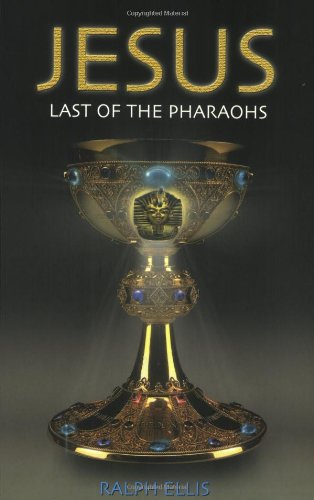
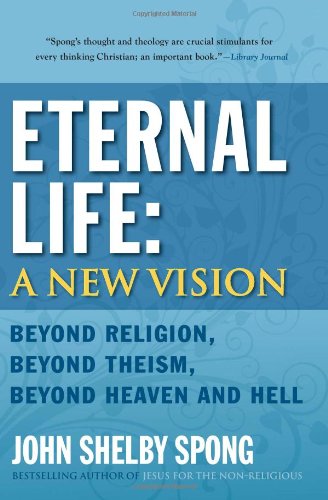
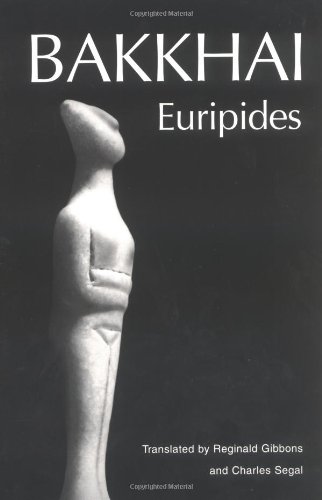










 354 Circles
354 Circles
 603 Goodreads Friends & Fans
603 Goodreads Friends & Fans

 Hello! I'm an author, historical Jesus scholar, book reviewer, and liberal Christian, which means I appreciate and attempt to exercise the humanitarian teachings of Jesus without getting hung up on any particular supernatural or religious beliefs.
The Bible is a magnificent book that has inspired and spiritually fed generations for thousands of years, and each new century seems to bring a deeper understanding of life’s purpose. This is true of not only Christianity; through the years, our age-old religions are slowly transforming from superstitious rituals into humanitarian philosophies. In short, we are growing up, and I am thrilled to be riding the wave.
I avidly read all thought-provoking religion titles. New authors: I'd love to read and review your book!
Hello! I'm an author, historical Jesus scholar, book reviewer, and liberal Christian, which means I appreciate and attempt to exercise the humanitarian teachings of Jesus without getting hung up on any particular supernatural or religious beliefs.
The Bible is a magnificent book that has inspired and spiritually fed generations for thousands of years, and each new century seems to bring a deeper understanding of life’s purpose. This is true of not only Christianity; through the years, our age-old religions are slowly transforming from superstitious rituals into humanitarian philosophies. In short, we are growing up, and I am thrilled to be riding the wave.
I avidly read all thought-provoking religion titles. New authors: I'd love to read and review your book!
 Hi! While Lee writes the articles and reviews the books, I edit, organize, and maintain the blog. The views expressed here are Lee's but I'm his biggest supporter! :-)
Hi! While Lee writes the articles and reviews the books, I edit, organize, and maintain the blog. The views expressed here are Lee's but I'm his biggest supporter! :-)
Connect With Me!